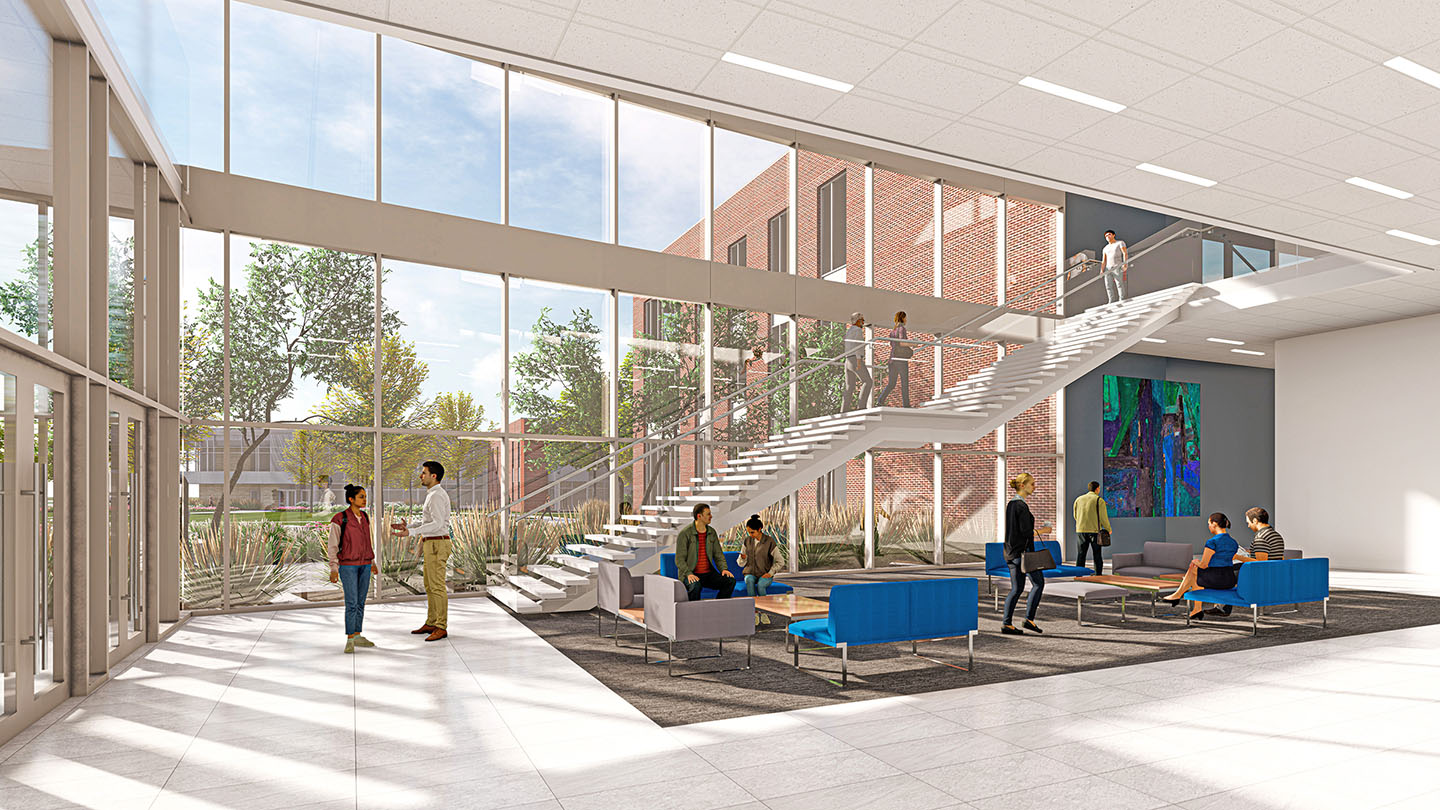LINCOLN – State senators on Thursday gave final approval to legislation allocating Nebraska’s share of federal American Rescue Plan funds, including $60 million for a proposed Rural Health Education Building that would expand health care programs on the University of Nebraska at Kearney campus.
The bill, LB1014, now moves to Gov. Pete Ricketts’ desk for consideration. The governor has until Wednesday to sign or line-item veto the package.
Building on the successful collaboration between UNK and the University of Nebraska Medical Center, the new Rural Health Education Building would significantly expand capacity for students to train in Kearney and remain in rural Nebraska after graduation to practice health care. The building aims to close the gap in rural Nebraskans’ access to quality health care caused by significant workforce shortages. Currently, 14 Nebraska counties lack a primary care physician, for example, and demand is high for more nurses, dentists, allied health professionals and mental health professionals.

University of Nebraska System President Ted Carter thanked the numerous elected leaders who have been strong advocates for investing in expanded health care education and workforce development in rural Nebraska. Legislation for the Rural Health Education Building was initially sponsored by Sen. Robert Hilkemann of Omaha, with Sen. John Lowe of Kearney as a co-sponsor.
“The UNK-UNMC Rural Health Education Building is an opportunity to change the trajectory for rural Nebraska for generations to come,” Carter said. “We’re grateful to Senator Hilkemann for bringing this legislation forward; to Chairman Stinner, Vice Chairwoman Wishart and the Appropriations Committee for their support; and to the full Legislature for its approval today, particularly Senator Lowe for championing this critical investment in Kearney.
“UNK and UNMC have a proven record of working together to address our state’s needs. The Rural Health Education Building is a bold new opportunity to expand access to health care, build the rural workforce and improve the quality of life for all Nebraskans.”
The Rural Health Education Building would grow the state’s talent pipeline by expanding existing UNMC programs offered in Kearney and bringing new options to the UNK campus, including medical nutrition, genetic counseling and respiratory care – all high-need areas in rural Nebraska.
For the first time, the UNMC College of Medicine would educate physicians in rural Nebraska, and a Master of Health Administration would be added to complement UNK’s undergraduate program. Discussion is also underway for the UNMC College of Pharmacy to offer a joint degree program with UNK, which will enhance its undergraduate curriculum to ensure future UNMC students have the highest quality of preparation for rural health service.
The partner institutions opened a $19 million Health Science Education Complex on UNK’s west campus in 2015, and that facility quickly filled to capacity. More than 300 students are currently pursuing degrees there in over a dozen professional programs. About 85% of the students who graduate from this building start their careers in Nebraska.
The Rural Health Education Building would be located directly north of the existing health science building, creating a hub for health education in rural Nebraska that serves current and future health care workers and supports collaborative research initiatives. It could be completed as early as 2025.
The $60 million included in LB1014 would go toward construction and start-up costs, with an additional $25 million expected to come from private funds. A companion bill introduced by Lowe, LB792, would provide ongoing programmatic funding. That bill awaits final passage by the Legislature.
The Rural Health Education Building was among a slate of proposals the University of Nebraska System brought to state leaders for recovery funding consideration. In February, Carter was joined by UNK Chancellor Doug Kristensen, UNMC Chancellor Jeffrey Gold, student leaders and others in testifying before the Appropriations Committee in support of the Rural Health Education Building and other proposals.


